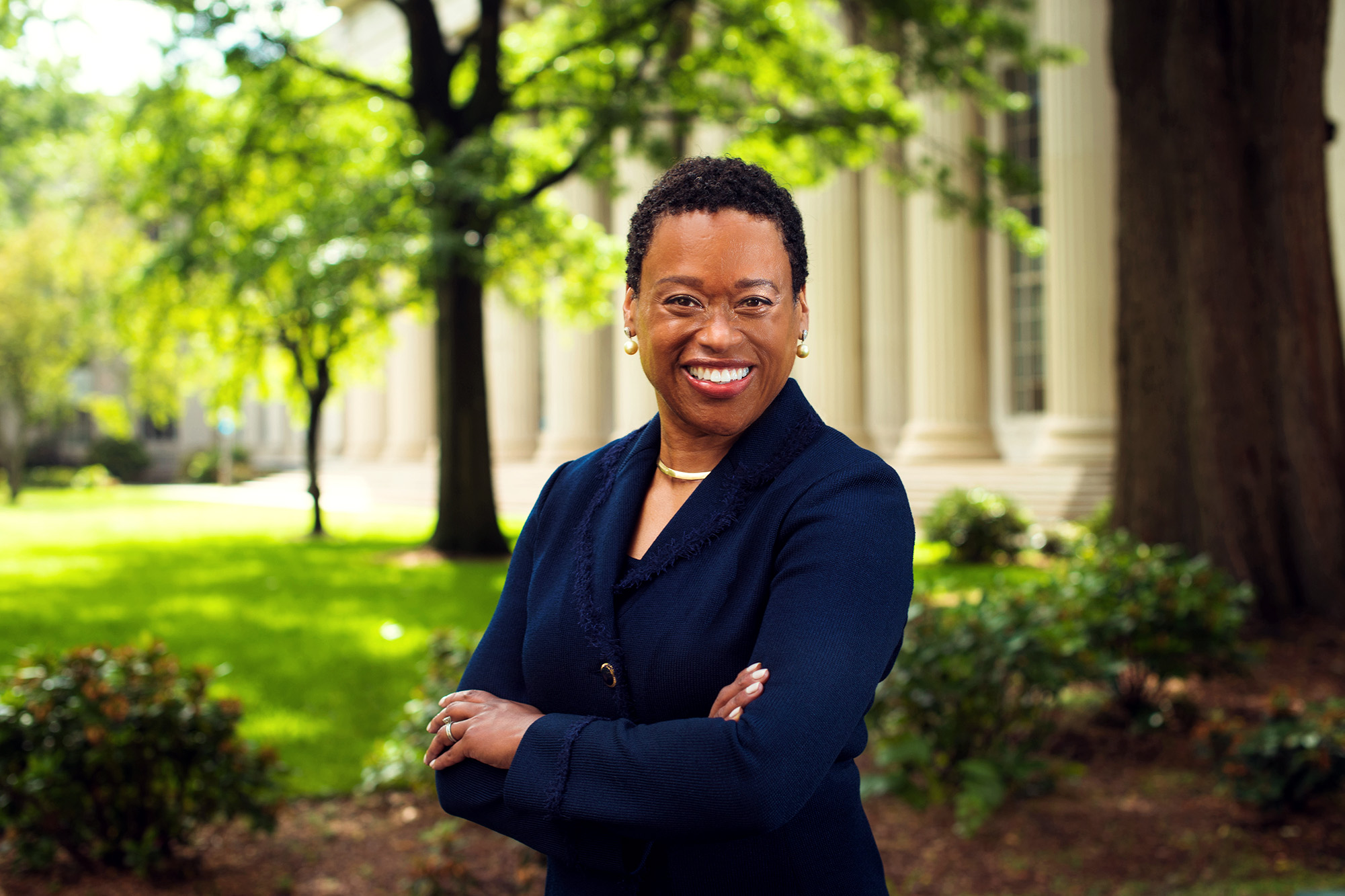Nobles is MIT’s new chancellor
The political scientist and SHASS dean will now oversee student life.

Melissa Nobles, the dean of the School of Humanities, Arts, and Social Sciences since 2015, has been named MIT’s chancellor as of August 18. She succeeds Cindy Barnhart, who returns to the engineering faculty after serving as chancellor since 2014.
Nobles, who earned her undergraduate degree at Brown University and her PhD at Yale, joined MIT in 1995 and served as associate chair of the faculty and head of the Department of Political Science before becoming dean. Her teaching and scholarship have focused on comparative ethnic politics and conflict, democratization, and retrospective justice. Her first book, Shades of Citizenship: Race and the Census in Modern Politics, examines how the development of the official census in both the US and Brazil contributed to racial categorization. Her second, The Politics of Official Apologies, studies government apologies for past injustices in the US, Canada, Australia, and New Zealand.
In announcing the appointment, President L. Rafael Reif praised Nobles for her “exceptional judgment and sense of fairness paired with her incisive intellect, humane wisdom, careful listening, unfailing eloquence, and charismatic wit.” As chancellor, she will oversee matters including admissions, teaching and learning, residential life, student support, and efforts to prevent sexual harassment and misconduct. She hopes to “continue building on MIT’s work to create a healthy and respectful learning environment—one that nurtures intellectual curiosity and emotional maturation.”
“MIT students have an enormous amount to offer society,” Nobles says. “They also have an enormous amount to learn from society. We have to prepare them for both, for a lifelong journey of learning. Our challenge now is to expand our approach to educating the whole student.”
Keep Reading
Most Popular
Large language models can do jaw-dropping things. But nobody knows exactly why.
And that's a problem. Figuring it out is one of the biggest scientific puzzles of our time and a crucial step towards controlling more powerful future models.
The problem with plug-in hybrids? Their drivers.
Plug-in hybrids are often sold as a transition to EVs, but new data from Europe shows we’re still underestimating the emissions they produce.
Google DeepMind’s new generative model makes Super Mario–like games from scratch
Genie learns how to control games by watching hours and hours of video. It could help train next-gen robots too.
How scientists traced a mysterious covid case back to six toilets
When wastewater surveillance turns into a hunt for a single infected individual, the ethics get tricky.
Stay connected
Get the latest updates from
MIT Technology Review
Discover special offers, top stories, upcoming events, and more.